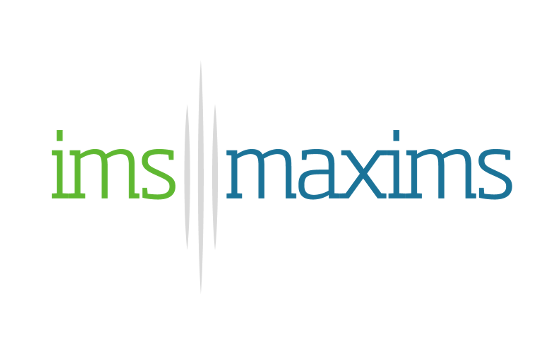 Blackpool Teaching Hospitals NHS Foundation Trust has laid the foundations for an ambitious digitisation programme, by deploying IMS MAXIMS technology in its emergency department. The go-live is already helping staff to better manage patients over the busy winter period. The trust's former ED system ran on old and complex infrastructure and, unlike the MAXIMS patient administration system (PAS), was hard to configure to give staff access to the information they need.
Blackpool Teaching Hospitals NHS Foundation Trust has laid the foundations for an ambitious digitisation programme, by deploying IMS MAXIMS technology in its emergency department. The go-live is already helping staff to better manage patients over the busy winter period. The trust's former ED system ran on old and complex infrastructure and, unlike the MAXIMS patient administration system (PAS), was hard to configure to give staff access to the information they need.
Steven Bloor, chief information officer at Blackpool Teaching Hospitals, said: "We would not have got through the winter with the system we had in place, so we really pushed to get MAXIMS in when we did.
"The ease of use and the flexibility of the system has been praised by users, and we are looking forward to having similar capabilities across the hospital as a whole."
Blackpool Teaching Hospitals is a long-standing user of IMS MAXIMS clinical technology and is committed to deploying the latest version of the company's electronic patient record.
The ED go-live will trigger an ambitious digitisation programme that will see the trust replace its PAS, deploy MAXIMS in theatres, and aim to complete the levels of the Digital Health Intelligence Clinical Digital Maturity Index by 2020-21.
The acute trust is also part of the Fylde Coast Local Health Economy, one of 14 multi-speciality community provider vanguards set up to test out new models of healthcare that ‘wrap around’ the patient. The MAXIMS deployment will be used to help share information across the health and care economy.
Bloor explained: "We want to surface information with the clinician where and when they need it, without having to access multiple systems.
"As our accountable care partnership across the Fylde coast develops, MAXIMS will enable the integrated approach needed to manage patient flow across the whole health community."
The ED go-live was supported by the MAXIMS FIRST CLASS deployment methodology, which focuses on working in collaboration with clinical and support professionals to make sure projects meet the needs of users and the hospital. The trust used floorwalkers to support staff for the first two weeks. Careful preparation ensured a smooth go-live, even though there were 150 patients in the ED on the day of the go-live.
"The emergency department is the start of the patient journey, so it is the logical place to begin the deployment of MAXIMS," Bloor said. "This is now the cornerstone for our wider digital ambitions."
Shane Tickell, CEO at IMS MAXIMS, said: "Blackpool Teaching Hospitals provides a strong example of an NHS trust determined to deliver technology that supports both regional and national ambitions for joined up, accountable care, at the same time as responding to the working needs of its staff and their patients.
"This has been an impressive deployment, taking place at a busy time of year for the NHS. But strong project management, planning and collaboration between the trust and our team, has allowed this to happen smoothly, with strong user acceptance and evidence that the technology is already making a difference."
About Blackpool Teaching Hospitals NHS Foundation Trust
Blackpool Teaching Hospitals NHS Foundation Trust serves a population of approximately 440,000 residents across Blackpool, Fylde, Wyre, Lancashire and South Cumbria and the North of England. It employs more than 6,900 staff and operates on a budget of approximately £410m per year. It has around 830 beds across all sites and see more than 100,000 day-case and inpatients, 350,000 outpatients and nearly 90,000 A&E patients every year.
About the Fylde Coast Local Health Economy
Blackpool Teaching Hospitals NHS Foundation Trust is one of six partners in the Fylde Coast Local Health Economy, which is one of 14 multi-speciality provider vanguards backed by NHS England to bring together health and care providers and develop new models of care that ‘wrap around’ the patient. The vanguard covers a population of 320,000 people living in a mix of coastal towns and rural villages. Shared electronic care records are a key part of the plan to ensure "seamless care, regardless of a person's care needs."
About IMS MAXIMS
IMS MAXIMS is an award winning clinical technology specialist committed to improving the coordination of patient care in healthcare environments. Its expert team works in partnership with healthcare organisations to identify and deliver tailored, sustainable information sharing technology solutions supporting the provision of safer and more efficient care for current and future generations.The organisation's 30-year history of collaborating with clinicians has resulted in the development of proven, flexible, user-friendly, safe and interoperable open source electronic patient record software. With an ambition to meet today's healthcare challenges, IMS MAXIMS makes its software available without a licence fee and offers flexible options to support healthcare providers with implementation and maintenance.
Its open technology has increased collaboration in the development of the software which has resulted in better clinical engagement and empowerment across hospital wards and departments. Deployment times are fast, meaning clinicians and patients can benefit from efficiency and safety improvements in rapid time.